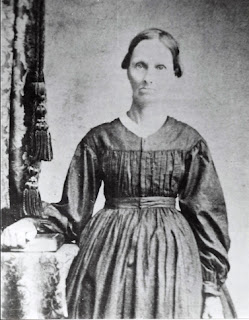Monday, June 2
Left camp this morning at six o'clock.
Very warm. Much thunder and lightening all around us through the day.
About 4:00 o'clock a cloud came up in the west which made us round
to. It commenced raining and kept it up until dark. It grew very
cold. We had rather a bad night, but for all we had made 29 miles.
Tuesday, June 4
Drove 26 miles today. Road very heavy.
Passed a number of creeks and some sand bluffs, and camped on the
Platte. Cold, heavy wind through the day.
Wednesday, June 5
Made 25 miles today. Did not start
until 2:00 o'clock on account of it being rainy. Roads very good.
Plenty of grass.
Thursday, June 6
Hitched up this morning at six o'clock.
Made 25 miles. Some of the way very heavy traveling. Camped tonight
on the Platte. Opposite to Sweet Bluffs. Good grass.
Friday, June 7
Made 30 miles today. Good roads. Four
miles from our morning came to a creek of good cold water. Some trout
in it.
Saturday, June 8
Made 24 miles today. Very good roads.
Came to timber 7 miles from our morning camp, the first we had seen
fro 200 miles except for one short cedar tree called Lone Tree.
Camped about two miles from Ft. Laramie.
Sunday, June 9
Lay in camp today. Overhauled our load.
Cut off one wagon box. Threw away some articles we could spare.



